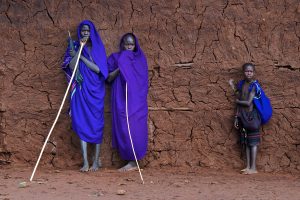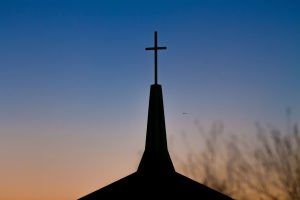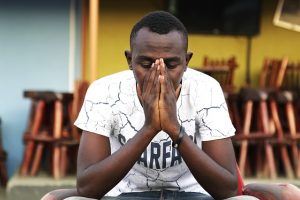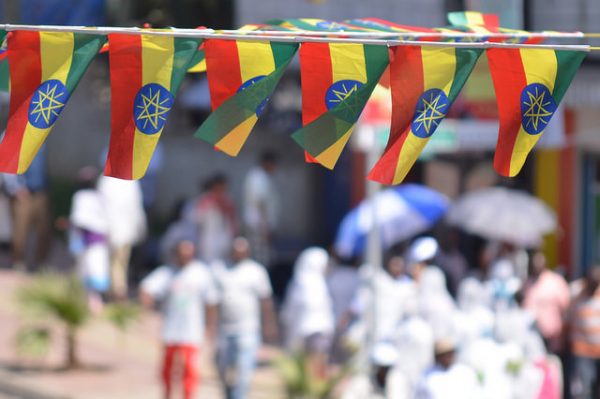East Africa (MNN) — The recent peace deal between Ethiopia and Eritrea is being widely celebrated by their people. However, once the confetti settles, what will peace between the two nations look like?
Before the peace accord, a long and bloody conflict defined the relationship between Ethiopia and Eritrea for nearly 20 years. Eritrea was formerly a province of Ethiopia until it gained independence in 1993. With the split, families were separated and lines were drawn in the sand. The fighting that started soon after was one of Africa’s most costly and devastating conflicts.
Three months ago, Ethiopians elected 41-year-old Abiy Ahmed as the new prime minister. Ahmed met with Eritrean President Isaias Afwerki in Addis Ababa over the weekend. Together they contrived a five-pillar agreement to end the conflict between their two nations.
Peter* from Ethiopia serves with Global Disciples. He says, “What they speak of is really forgiveness for what happened in the past, love, and peace. That is the language the prime minister of Ethiopia is speaking and the same that the president of Eritrea is echoing.”

Suri tribesmen in Ethiopia. (Photo courtesy of Trevor Cole via Unsplash)
With this new peace agreement, borders will be reopened and trade reinstated between the two countries. The key now is seeing whether the peace agreement will stand as each government holds to their side of the deal. Previous attempts at reconciliation between Ethiopia and Eritrea have failed.
Christians in Ethiopia are also wondering what peace with Eritrea could mean for the spread of the Gospel.
Eritrea is number six on Open Doors’ World Watch List, which rates countries with the worst persecution of Christians. According to Open Doors, the majority of Christian persecution in Eritrea stems from dictatorial paranoia. There is only one sanctioned church denomination: the Eritrean Orthodox Church. Believers in other denominations are persecuted by the EOC and Muslim communities. They are even arrested by the government, who accuses them of spying for the West.
Peter explains, “Before Eritrea became independent, in Eritrea all the denominations — whether Lutheran or Protestant, or Evangelical, Pentecostal — all churches were there. When Eritrea became independent and started persecuting, then many of them went underground…. There are underground churches in Eritrea, even if most of them are in prison.”

Photo courtesy of Unsplash
Now, some are hopeful that Ethiopia can be a good example of greater freedoms to their Eritrean neighbors — including religious freedoms.
“I was watching on Sunday the celebration of the peace between Eritrea and Ethiopia in which the different religious leaders gave a speech in the presence of the president and the prime minister and the government officials from both countries. It has really demonstrated it is possible for different people groups and different religious groups to live together in peace, respecting one another, [and] sharing the love of Christ.”
As the border between Eritrea and Ethiopia reopens, it could mean growing evangelism access for Ethiopian churches near the border. “Those [churches] who are bordering with Eritrea speak the same language and it will give them access easily to cross,” says Peter. However, just how much Eritrea will tolerate has yet to be seen.
Peter has experienced successful evangelism across national borders. He is hopeful for evangelism efforts between Ethiopia and Eritrea as well. “When I was a mission director serving with one denomination in my country, it gave me an opportunity to work on the border of Sudan, Somalia, [and] Djibouti — training and sending those who speak their language [who then] easily planted churches. So that will give an opportunity for the churches in Ethiopia to get access even if Eritrea is on one of the top 10 [World] Watch List.”

Photo courtesy of Pixabay
Global Disciples equips churches in Ethiopia to reach the least-reached with the Gospel. Peter explains, “Global’s strategy is near-culture workers. So as we empower the Ethiopian churches who have vision to reach the least-reached people, I think Global will work with those churches…. They will take the Gospel next-door. It is almost the next village because for some of them they are on the border [with Eritrea].”
As the world watches how the new peace accord between Ethiopia and Eritrea will play out, Christians around the world can pray for the nations and believers there.
“I really thank God for the beginning of this reconciliation between the two countries and peace. Keep praying for this to open wide doors for the Ethiopians to go and reach the unreached people group in that country as well as for God to soften the heart of the government of Eritrea. We have to pray for them.”
Also, Peter asks, “Keep praying…for the Ethiopian Church to use this opportunity to take the Gospel to Eritrea.”
*Name changed for security purposes.
















